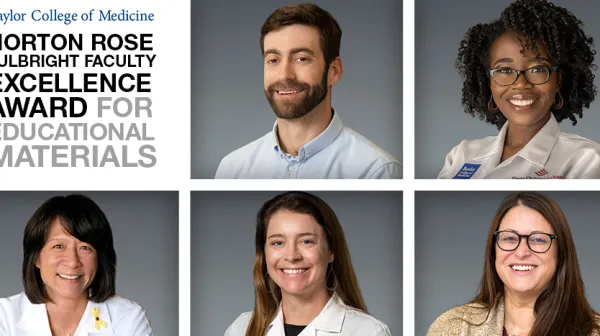Titilope Fasipe, MD, PhD
- Cancer and Blood Disorders

Co-Director, Sickle Cell Program
Associate Professor, Department of Pediatrics, Division of Hematology-Oncology, Baylor College of Medicine
Email: taishola@texaschildrens.org
Phone:
832-822-4242
Clinic
Phone:
832-822-4362
Office
Languages: English
Office location:
Texas Medical Center
6701 Fannin Street
Houston, TX 77030
Get to know Titilope Fasipe, MD, PhD
Dr. Titilope Fasipe's goals are shaped by her desire to help children facing the hardships of a blood disorder. She is intrigued by the clinical challenges of non-malignant hematologic diseases, where in particular, patients with sickle cell disease continue to have significant co-morbid complications and decreased lifespan. Furthermore, she has long been passionate about the psychosocial barriers to care experienced by children with sickle cell, especially during the transitional years.
In addition to Dr. Fasipe's academic role, she is actively involved in various sickle cell-focused community efforts targeted at understanding these challenges. At the state level, she was appointed to the first Texas Sickle Cell Advisory Committee (2016-2018) by the Executive Commissioner of the Texas Health and Human Services. At the local level, she is the current chair of the Houston Sickle Cell Collaborative - a joint effort between the Houston Health Department and organizations vested in sickle cell disease.
In 2020, she was selected as a reviewer of The National Academies of Sciences Engineering Medicine's (NASEM) consensus report on, "Addressing Sickle Cell Disease: A Strategic Plan and Blueprint for Action."
She is board certified by the Texas State Board of Medical Examiners and the American Board of Pediatrics in both pediatrics and pediatric hematology-oncology.
Clinical Interests
Sickle cell disease and other hemoglobinopathies, general hematology conditions
Education
| School | Education | Degree | Year |
|---|---|---|---|
| Texas Children's Hospital/Baylor College of Medicine | Fellowship | Pediatric Hematology-Oncology | 2016 |
| Cincinnati Children's Hospital Medical Center | Residency | Pediatrics | 2013 |
| University of Texas Medical Branch | Medical School | Doctor of Medicine | 2010 |
| University of Texas Medical Branch | PhD | Doctor of Philosophy, Cell Biology-Cancer Track | 2010 |
| University of Texas at Arlington | Bachelors | Bachelor of Science, Biology and Chemistry | 2003 |
Organizations
| Organization Name | Role |
|---|---|
| Alpha Omega Alpha Honor Medical Society | Member |
| American Academy of Pediatrics (AAP) | Member |
| American Society of Hematology (ASH) | Member |
| American Society of Pediatric Hematology/Oncology (ASPHO) | Member |
| American Society of Pediatric Hematology/Oncology (ASPHO), Hemoglobinopathy Special Interest Group | Chair |
| Children’s Oncology Group (COG) | Member |
| Gold Humanism Honor Society | Member |
| NIH/NHLBI Sickle Cell Disease Advisory Committee | Chair |
Board Certifications
| Title |
|---|
| American Board of Pediatrics - Pediatrics |
| American Board of Pediatrics - Pediatric Hematology/Oncology |
| Texas State Board of Medical Examiners |
Honors and awards
- 2024
-
Norton Rose Fulbright Faculty Excellence Award for Educational Materials, Baylor College of Medicine
- 2021
-
Faculty Early Career Award for Excellence in Clinical Care, Baylor College of Medicine
- 2016
-
Award for Basic Research Poster Presentation, Post-Doctoral Fellow in a Clinical Fellowship, BCM Research & Fellows’ Symposium
- 2015
-
American Society of Hematology Abstract Achievement Award
* Texas Children’s Hospital physicians’ licenses and credentials are reviewed prior to practicing at any of our facilities. Sections titled From the Doctor, Professional Organizations and Publications were provided by the physician’s office and were not verified by Texas Children’s Hospital.
Highlights
Research Area:
Sickle Cell Disease and Thalassemia
Dr. Fasipe's research interests are focused on understanding barriers to transitioning youth with sickle cell to adult care. She desires to improve readiness to transition through active training and mentorship programs. Additionally, she wants to understand the factors related to patients with high care utilization patterns, in particular those with recurrent pain encounters. Dr. Fasipe is working to provide interventions to help improve pain management and hence, decrease the burden of high utilization. Her work is supported, in part, by a grant from the American College of Emergency Physicians and Pfizer.




